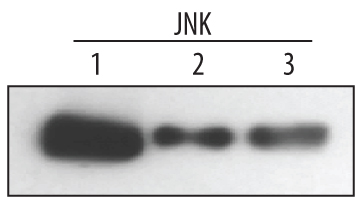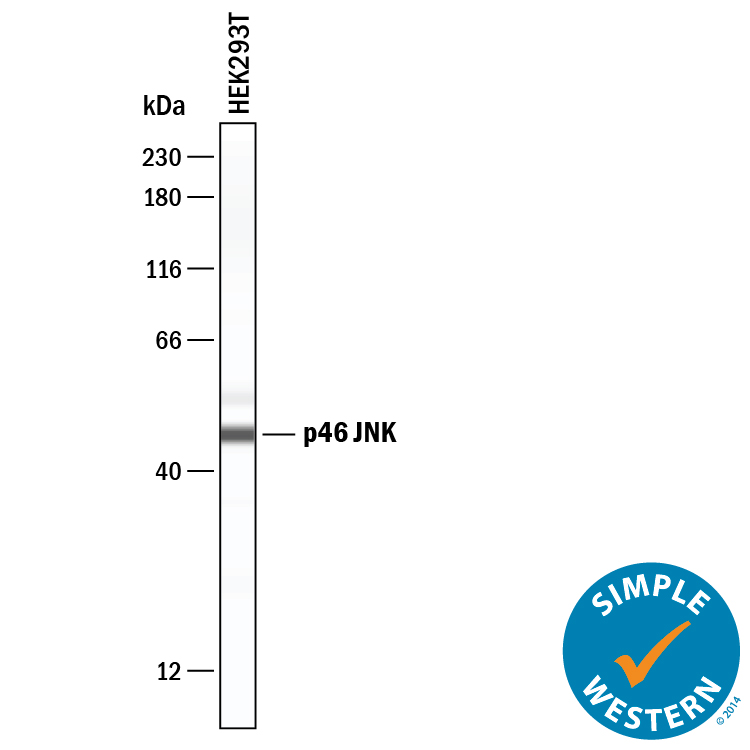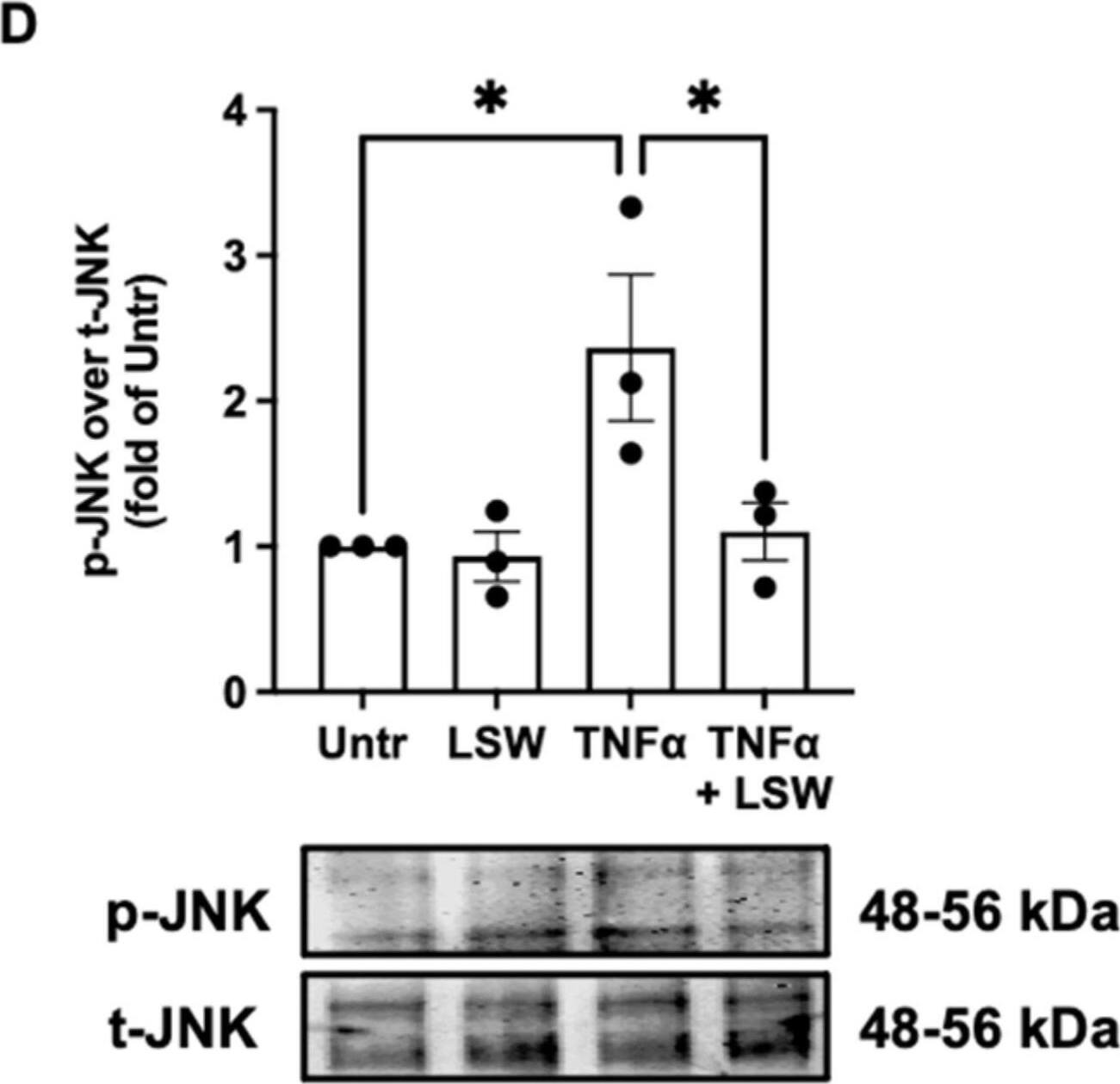Human/Mouse/Rat JNK Pan Specific Antibody
R&D Systems, part of Bio-Techne | Catalog # MAB1387


Key Product Details
Validated by
Species Reactivity
Validated:
Cited:
Applications
Validated:
Cited:
Label
Antibody Source
Product Specifications
Immunogen
Ser2-Ile384
Accession # P45983
Specificity
Clonality
Host
Isotype
Scientific Data Images for Human/Mouse/Rat JNK Pan Specific Antibody
Detection of Human/Mouse JNK by Western Blot.
Western blot shows lysates of HeLa human cervical epithelial carcinoma cell line, HepG2 human hepatocellular carcinoma cell line, and C2C12 mouse myoblast cell line. PVDF membrane was probed with 0.2 µg/mL Mouse Anti-Human/Mouse/Rat JNK Pan Specific Monoclonal Antibody (Catalog # MAB1387) followed by HRP-conjugated Anti-Mouse IgG Secondary Antibody (Catalog # HAF007). Specific bands for JNK were detected at approximately 46 kDa (p46 JNK) and 54 kDa (p54 JNK) (as indicated). This experiment was conducted under reducing conditions and using Immunoblot Buffer Group 1.Detection of Human JNK by Western Blot.
Western blot shows recombinant human JNK1, JNK2, and JNK3 (1 ng/lane). PVDF membrane was probed with 0.2 µg/mL Mouse Anti-Human/Mouse/Rat JNK Pan Specific Monoclonal Antibody (Catalog # MAB1387) followed by HRP-conjugated Anti-Mouse IgG Secondary Antibody (Catalog # HAF007). This experiment was conducted under reducing conditions and using Immunoblot Buffer Group 1.Detection of Human JNK by Simple WesternTM.
Simple Western lane view shows lysates of HEK293T human embryonic kidney cell line, loaded at 0.2 mg/mL. A specific band was detected for JNK at approximately 47 kDa (as indicated) using 10 µg/mL of Mouse Anti-Human/Mouse/Rat JNK Pan Specific Monoclonal Antibody (Catalog # MAB1387) . This experiment was conducted under reducing conditions and using the 12-230 kDa separation system.Applications for Human/Mouse/Rat JNK Pan Specific Antibody
Simple Western
Sample: HEK293T human embryonic kidney cell line
Western Blot
Sample: HeLa human cervical epithelial carcinoma cell line, HepG2 human hepatocellular carcinoma cell line, and C2C12 mouse myoblast cell line
Formulation, Preparation, and Storage
Purification
Reconstitution
Formulation
Shipping
Stability & Storage
- 12 months from date of receipt, -20 to -70 °C as supplied.
- 1 month, 2 to 8 °C under sterile conditions after reconstitution.
- 6 months, -20 to -70 °C under sterile conditions after reconstitution.
Background: JNK
Members of the MAPK family, the c-Jun N-terminal kinases (JNKs) are activated by environmental stresses and inflammatory cytokines. Ten JNK isoforms are created by alternative splicing of mRNA transcripts derived from three genes: JNK1, JNK2, and JNK3. All JNKs are activated by dual phosphorylation; at T183/Y185 for JNK1 and 2, and T221/Y223 for JNK3. Activated JNKs translocate to the nucleus where they regulate the activity of several transcription factors; including the c-Jun component of AP-1 and ATF-2.
Long Name
Alternate Names
UniProt
Additional JNK Products
Product Documents for Human/Mouse/Rat JNK Pan Specific Antibody
Product Specific Notices for Human/Mouse/Rat JNK Pan Specific Antibody
For research use only



